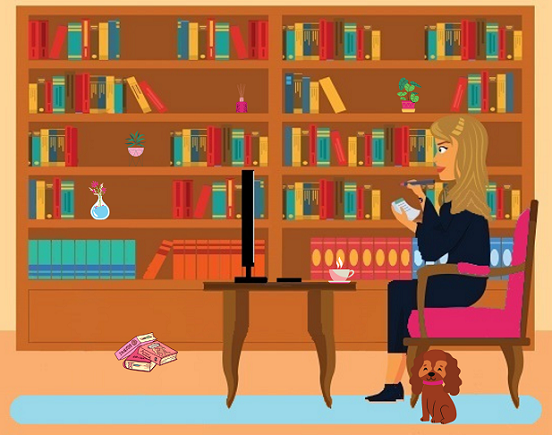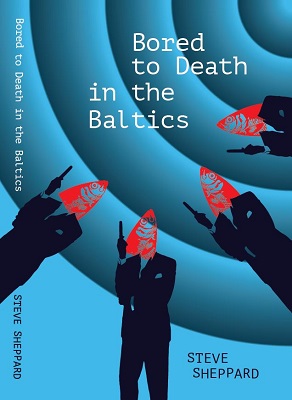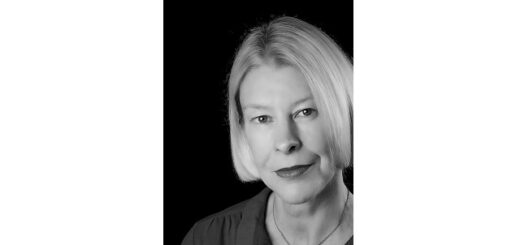The Writing Life of: Steve Sheppard
Steve Sheppard
This week I am thrilled to be interviewing author Steve Sheppard, who will be sharing with us details of his writing life, telling us all about his new book ‘Bored to Death in the Baltics‘, which was released on 14th September 2021, and answering a few fun questions. This post contains affiliate links.
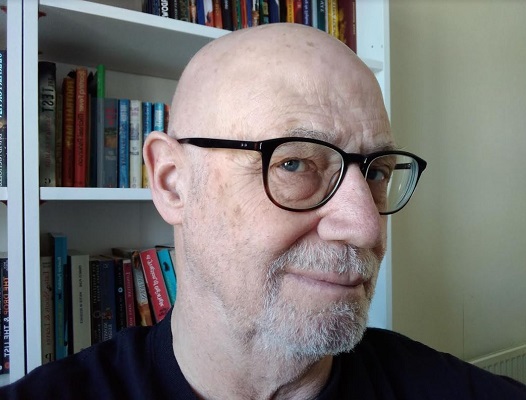
Steve Sheppard was born in Guildford and grew up in a house with a river at the bottom of the garden. This makes him sound quite posh but it wasn’t a very big house and it wasn’t a very big river. Nine years at boarding school taught him absolutely nothing about how to be an adult and actually becoming an adult also failed in this respect. One thing he did eventually learn, however, was that he ought to have tried writing a book much earlier than he did, although he also now realises that he should have become a celebrity first, as this would have made selling it much easier.
In between many varied day jobs and writing A Very Important Teapot and Bored to Death in the Baltics, Steve has also tried his hand at composing the occasional short story, although he finds it quite difficult to write anything that could be considered short. Most of his stories have met with blank indifference but one, Geronimo, did achieve 2nd place out of 500 or more entries in the 2019 To Hull and Back humorous short story competition. He used to write sad poetry but fortunately lost it all in a house move.
Having lived in an increasingly empty house in a quirky, not-quite-Cotswold village in west Oxfordshire for the past quarter of a century, Steve has, with mixed feelings, recently moved to Hampshire to avoid the paparazzi. He is now attempting to see if any of his (very) old friends still recognise him.
1) Did you enjoy writing when you were a child?
I don’t remember doing much writing as a young child although I do know I started coming up with some fairly creative essays after I was packed off to boarding school at the age of 9 and these developed into helping edit the school magazine from 16 to 18 and producing some funny pieces, not to mention one or two quite scurrilous articles (I remember being quite rude about the Biology teacher – sorry Mr Curtis).
2) Which author shaped your childhood?
Leslie Charteris (The Saint). The books were mainly written pre-war and are pretty dated now but were really quite funny and certainly include a lot of clever wordplay, which I think I subconsciously try to imitate. I discovered them before I knew about the TV Series with Roger Moore (who was a far better Saint than Bond) on one of many extended visits to relatives whilst my mother was in hospital. As I didn’t know anyone on those visits, I did a lot of reading.
3) What motivated you to begin your first novel?
I had a sort of epiphany whilst sitting on a plane back from five weeks in Australia in April 2017. I was just approaching my 64th birthday and had always wanted to write a book. I’d started a few over the years but they always seemed to get stuck at about page 15 because I had no idea where the story was going. There was also the usual business of family, work and other interests taking up all my time (I thought).
On the plane, I decided simply to sit down and write for the rest of the year and see where I got to. Where I got to was a 100,000 word first draft of A Very Important Teapot. I started with only a protagonist (a fictionalised version of myself at the age of about 30), a location, Australia obviously as that’s where I’d been, and in particular the small town of Yackandandah, where we’d attended a folk festival.
Let’s face it, if you’re going to write a comic novel, you can’t go far wrong with a name like Yackandandah. Apart from that and a vague feeling that spies ought to be involved, I had nothing. Which brings us neatly on to your next question…
4) Do you plot your book, or are you a pantser?
Pantser, pantser, pantser, although I didn’t hear the expression until some time after I’d finished A Very Important Teapot. I wish I’d known pantsing was a thing years ago. It makes for a fairly hectic ride when even I don’t know how a chapter might finish when I start it or which characters will unexpectedly turn out to have major roles to play. Plays merry hell with the editing process though. I mean, Australia? 10 hour time difference. Several different plot threads going on at once but at different times? Nightmare!
5) What is your average writing day?
I still do “proper” work four days a week so I can’t say I have an average writing day. And in the past year, with a lot of personal changes going on in my life, including a move of house and county, my writing has taken a bit of a hit. I’m trying to get on with Book #3 now though and my writing area (which is also my work from home office) is this. I often move into the living room though. I know I should be writing every day and I may get back to that but at the moment Wednesday and Sunday mornings are my most profitable times.
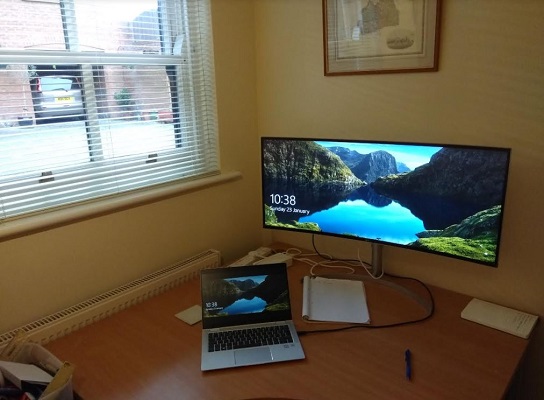
Where Steve Sheppard Writes
6) What is the best thing about being an author?
I certainly feel a sense of achievement, firstly for actually writing the books (especially the second one because it would have been easier to stop), secondly for finding a proper publisher (albeit a tiny one with no marketing budget) and thirdly because a number of complete strangers have said they enjoyed them. So they obviously aren’t that bad. I’m also quite proud that I’ve basically invented a whole new genre – if you can find another comparable “comedy spy thriller” out there, I’d be pleased to hear about it, because I haven’t.
Publisher – Claret Press
Pages – 262
Release Date – 14th September 2021
ISBN 13 – 978-1910461310
Format – ebook, Paperback
Synopsis
When a bomb explodes in front of Dawson on a sunny June morning, he is lucky to escape with his life, certainly luckier than the man he is following.
But finding himself a few hours later in the bilges of a ship heading for the eastern Baltic is less fortunate as that is not how he’d planned to spend his weekend.
Who is the man assassinated by the bomb?
Who has kidnapped Dawson, and will Lucy Smith find him in time?
What is happening deep underground in rural Estonia and leafy Surrey?
Is there a double agent within MI6?
Who are the tantalising Sesks twins really working for?
Can Dawson and Lucy distinguish Wright from Rong?
And can Dawson avoid being bored to death?
Purchase Online From:
7) How did you go about researching the content for your book?
I felt that Dawson and Lucy deserved a second outing. I would have felt the same way even if lots of people hadn’t urged me to write a sequel. With A Very Important Teapot having been set in Australia, I knew Book 2 needed to be somewhere completely different (it still had to be abroad because of the MI6 involvement) and I thought first of Scandinavia generally (which would also avoid the 10 hour time difference mentioned above!), then Latvia. Latvia morphed into Estonia during the writing, mainly because I discovered that the island of Saaremaa is Estonian, not Latvian.
I did go to Tallinn (the weekend before Covid sent us all home in March 2020) but I hold my hand up and say that I have not been to Saaremaa or Tuhala where the bulk of the action happens. I genuinely don’t think it matters. I don’t go into long spiels about the countryside or try to guess unlikely facts. The books are all about the characters and the action (and of course the humour). So Mr Google and his close pal, Mr Wikipedia are very good friends of mine.
8) How long did it take to go from the ideas stage to writing the last word?
It took me nine months to write The End on the first draft of A Very Important Teapot. Bored to Death in the Baltics took me longer, perhaps 15 months. Book 3 is taking longer still, caused by a hiatus in my life over the last 18 months.
9) What made you choose the genre you write in?
It genuinely chose me. I’ve tried to write seriously and I always fail. The comedy always comes out. I’ve never taken life seriously enough, probably, which is why I’m not rich.
10) How did you come up with the name(s) for your lead character(s)?
I played cricket many years ago against a bloke with the unusual Christian name of Dawson. Dawson isn’t Dawson’s first name but it’s the name he’s known by as he hates his actual first name (Saul). Some names I give some thought to but most are just plucked at random from the air.
11) Can you give us an insight into your characters?
As I said earlier, Dawson is a fictionalised version of me from a period in my life around the age of 30, starting off out of work from a series of dead-end sales jobs and spending too much time in the pub. Feckless but with hidden depths (I’m not sure if I have the hidden depths!).
Lucy became the second main character when I decided (although I’m not sure it was a deliberate decision) to write some chapters in the 1st person as her. But every feckless bloke needs a beautiful, kick ass girlfriend who’s way out of his league, doesn’t he?
12) How did you feel when you had completed your book?
Relieved, pleased obviously because I thought there was something OK about it, but also with absolutely no idea what I was going to do with it. This refers to the first book of course. With Bored to Death in the Baltics, I knew Claret would publish it if it held up against Teapot, but I was unsure if it was better or worse. I now think it’s slightly better.
Fun Questions

1) Do you have a favourite quote?
Not a quote but “That’ll do” will be on my tombstone.
2) Do you have any pets?
I (we) have had cats for donkeys’ years but my recent move meant I donated the latest to my son and his girlfriend. This is her (the cat, Poppy, not the girlfriend). So she’s still in the family but not now with me. As you can see, she is a discerning reader.
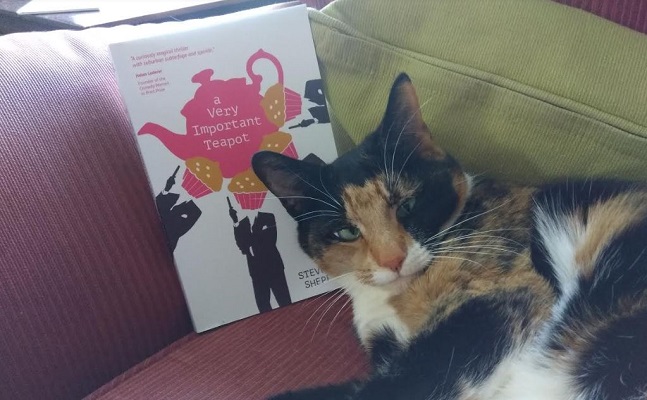
3) What are you currently reading?
I’m nearly up to date with Mick Herron, who is astonishingly brilliant. Currently re-reading all Guy Bellamy (another inspiration, particularly for the comedy, although I’d forgotten how obsessed he was with sex and money), having discovered all his books in a box in the roof when I moved.
4) Your book has been made into a movie, you’ve been offered a cameo role, what will you be doing?
If it’s Bored to Death in the Baltics, I’d be old Godfrey, the security bloke at the British Embassy, Tallinn
5) If you could travel to a fictional world from any book for the day, which would you choose?
A Very Important Teapot (of course!). We were due to go back in November 2020 but some bug or other stopped us.
6) There’s a penguin sitting in your chair, what’s the first thing he says to you?
‘What page am I on?’
A big thank you to Steve Sheppard for sharing his writing life with us and a wonderful interview.
Author links
Goodreads
Website

